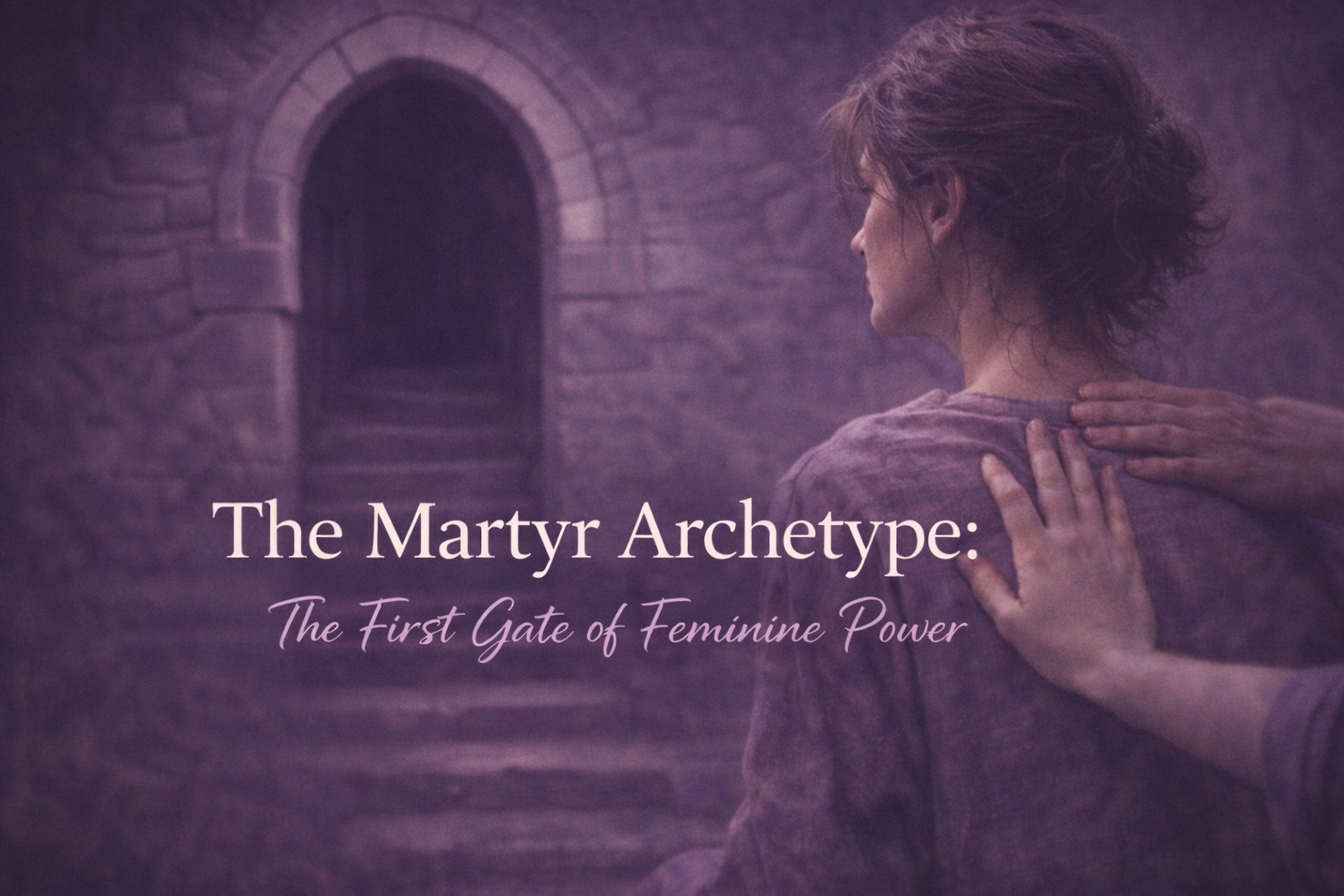(Editor’s Note: This article was originally published in October 2023 and has been lovingly revised and expanded. The message remains the same… yet the energy and embodiment have deepened. What was once reflection has become lived wisdom.)
There is a quiet tenderness in this topic… one that deserves to be met with compassion. The conversation around sexuality, shame, and spirituality has long existed in fragments, often shaped by the contradictions of our culture.
In today’s world, women are asked to be everything all at once… desirable yet pure, expressive yet contained, open yet never “too much.” The result is confusion, fragmentation, and the constant negotiation between who we really are and who we’ve been told to be.
Our collective understanding of sexuality has been distorted for centuries. On one hand, we see an overexposure of the body that celebrates performance over presence. On the other, a lingering moralism still whispers that pleasure is something to be ashamed of.
Between these two extremes, the feminine finds herself yearning for wholeness.
When I first wrote this piece, I had just begun to understand how sexual shame lives not only in our bodies but also in our spiritual stories. Today, I see it even more clearly… the way shame and sanctity have become entangled, and how healing one inevitably liberates the other.
The Roots of Sexual Shame
Sexual shame is not simply a fear of being judged… it’s an inherited belief that your natural, embodied self is somehow wrong. It’s the inner tightening that says, “I must hide this part of me.”
It often begins before we even realize what desire is. It’s in the warnings, the silences, the disapproving looks. Over time, it becomes part of the nervous system’s language. The body remembers.
For women, it can also stem from the centuries of conditioning that taught us to divide ourselves, to be either pure or wild, saint or siren, Madonna or temptress.
But what if both sides are sacred?
What if your sensuality and your spirituality were never meant to be opposites… but two expressions of the same divine current?
This is where healing begins.
When Spirituality Becomes Another Cage
Spirituality has the power to heal sexual shame… but it can also deepen it if approached through fear or hierarchy.
Many spiritual traditions teach transcendence, to rise above the body, to master desire, to purify emotion. While these teachings hold beauty, they can also become a quiet prison for women who internalize them as, “My body is a problem to be solved.”
The truth is, the body is not the obstacle to enlightenment… it is the instrument of it.
True spirituality is not about escaping the physical but about sanctifying it. It’s the remembrance that the divine is not found “above,” but within, pulsing through breath, touch, and presence.
If this theme speaks to you, you may find resonance in Sacred Sexuality: A Transmission of the Archetypal Feminine, where I explore how sacred energy flows through the body as remembrance, not performance.
The Feminine Split Between Sacred and Sensual
For generations, women were told they could be spiritual or sensual… but not both.
This belief created an internal split, a disconnection between our higher self and our primal nature. Yet the feminine in her wholeness holds both polarities with grace. She is the priestess and the lover… the mystic and the flame.
To deny either side is to live only half alive.
Healing sexual shame means allowing both aspects to coexist in harmony. It’s remembering that the same energy that awakens during prayer can also awaken in passion. Both are invitations into presence… both are pathways to the divine.
This integration echoes through my piece The Power of Sacred Sexuality: Protecting Your Energy and Self Worth, where I write about the fine line between openness and discernment… between being available to love and staying anchored in self-worth.
How the Body Holds the Memory of Shame
The body remembers what the mind tries to forget.
When we’ve absorbed messages that our pleasure is wrong, our nervous system adapts, tightening, numbing, protecting. Over time, this becomes disconnection. We may crave closeness yet feel unsafe in it… long for intimacy yet freeze in the face of it.
This is why embodiment work is so powerful. It allows us to reintroduce safety into the places that once held fear.
Breath, movement, sound, these become spiritual practices when done with intention. Each is a way of saying to the body, “You are safe now. You are sacred. You can soften.”
I speak about this somatic connection in How Nervous System Regulation Dictates What You Can Hold True transformation isn’t intellectual… it’s cellular.
The Role of Society and Culture
In a world where female sexuality is both idolized and condemned, shame becomes inevitable.
Women are taught to perform empowerment instead of embodying it. Modern media encourages exposure, not intimacy. The result is disembodiment, the sense that our sensuality exists for the gaze of others rather than as an inner experience of power.
As Psychology Today notes in its research on sexual self-esteem, when sexuality is externalized, it becomes tied to approval and validation rather than authentic connection.
True sensuality is quiet. It’s not about being seen but about being felt. It’s the energy that moves when you are in your body, rooted in self-worth, unashamed of your softness.
This is the same essence explored in Worth as Wealth: The Gate of Self-Worth , where I write about how the energy of worth expresses not as performance but as radiance.
Reclaiming the Body as Sacred
Spirituality is meant to bring us home to ourselves. When we return to the body with reverence, we begin to dissolve the illusion that pleasure and holiness are separate.
The sensual body… when inhabited with presence, becomes a temple of wisdom! Every breath, every heartbeat, every shiver of feeling becomes an invitation into communion.
This reclamation does not require rebellion… only remembrance.
We remember that pleasure is not proof of sin but evidence of life. That sensuality is not indulgence but intimacy with existence itself.
If you’re drawn to explore this more deeply, Divine Sex and the Healing Power of Sexual Energy offers a deeper initiation into this remembrance… the way sexual energy, when consciously held, becomes medicine rather than taboo.
The Healing Journey
Healing sexual shame is not linear. It unfolds layer by layer, sometimes in silence, sometimes in release.
It often begins with naming the shame without judgment. Observing where it lives in the body… how it tightens or contracts… how it affects the way you relate to love, to touch, to expression.
The next step is compassion. Compassion for the younger self who absorbed those messages, for the woman who learned to hide her radiance, for the human who still sometimes forgets she is divine.
This kind of self-compassion is an act of spiritual defiance.
As MindBodyGreen writes in its article on body-soul integration, healing begins not when we fix the body, but when we befriend it.
And so we practice listening.
We listen to our desires not as dangers but as guidance. We listen to our bodies not as flawed but as wise. We listen to our hearts not as unruly but as holy.
A Return to Innocence
When a woman reclaims her sensuality as sacred, she returns to innocence, not the innocence of naivety, but of truth.
She remembers that her body was always holy… her pleasure always divine. The shame dissolves because it cannot survive the light of awareness.
This is the feminine path of integration… where spirit and flesh are no longer at war, and desire becomes prayer.
The image that accompanies this piece evokes that energy, the soft, golden glow of intimacy… the meeting of breath and spirit… the space where human and divine touch.
That is the essence of this work, to remember that your sensuality and your spirituality were never meant to be divided. They are one and the same heartbeat.
Conclusion
To heal sexual shame is to rewrite the story of the feminine.
It is to remember that pleasure is not the opposite of purity… that your body is not separate from your soul… that your desire is not your downfall but your devotion.
The journey home is simple, though not always easy. It is the slow, patient work of learning to love what has been shamed, and to see beauty where once there was judgment.
And as each woman does this work, the collective heals. The field shifts. The world remembers.
Because when the feminine remembers her body as sacred… the whole Earth breathes easier.







2 Reflections
Share your reflection below... I’d love to hear how this transmission lands for you.
This reflection space is part of a living temple of dialogue, a place for insight, resonance, and respectful exchange. All comments are read with care and may be lovingly edited for clarity, formatting, or safety before publication. Please share from your heart, speak with kindness, and keep this space high in frequency. Promotional links, aggressive language, or off-topic content will be removed. Thank you for honoring the spirit of this sanctuary.